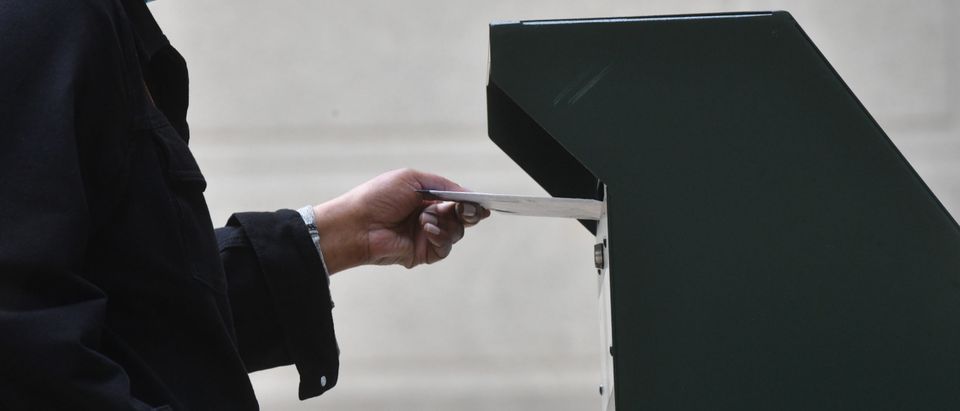Now that the dust is slowly settling on the Nov. 3 elections, it’s fair to ask if polling industry debacles will boost competitors which were far closer to predicting the results. A quick analysis of the aftermath can help Americans decide for themselves.
First, pollsters assured us Hillary Clinton would be elected four years ago. She was up by more than 3% nationally, and led in key swing states after all. The New York Times showed the major poll aggregators, including its in-house NYT Upshot, giving her between a 70% and 99% chance to win. Next they told us Joe Biden would win in a landslide this year since he was up by more than 8% nationwide and held even bigger swing state margins than Clinton.
Both times, they were flat wrong. The Clinton and Biden contests against Donald Trump were razor close, coming down to just tens of thousands of votes in a handful of states — incredibly out of roughly 130 million and over 150 million cast in 2016 and 2020, respectively.
Meanwhile, crowdsourcing sites, where personal fortunes can be won or lost, were considerably closer to realistic projections.
Just look at the numbers.
Within 24 hours prior to this election, the nation’s best known poll aggregator, Nate Silver’s 538, gave Biden an 89% chance to win compared to Trump’s 10%. Yet prediction markets like Predict It gave him 61¢ on the dollar to Trump’s 44¢, roughly signaling a 44% chance at victory.
Polymarket was similar, putting Trump’s betting odds at 38¢. According to the website, it “displays existing markets on the Ethereum blockchain” a global platform for monetary transactions. Polymarket’s current volume is about $12 million, predicting everything from the presidential election to if Kanye West and Kim Kardashian will divorce by Jan. 1, 2021.
But it’s not just prediction, a.k.a. information markets that may eclipse the polling business.
According to Real Clear Politics, America’s top competitor to 538, its compilation showed sports betting markets also far outperformed the pollsters. Bovada had it 64% to 35%, Bwin 61% to 40%, Smarkets 65% to 29%, SpreadEx 70% to 34%, and Unibet 59% to 40%.
So what did they know that the polling industry didn’t?
Probably not much. Their more realistic and honest appraisals can be found at the crossroads of economic and political theory.
On the economic path, studying the Austrian school and its leading figures of the 20th century, Friedrich von Hayek and Ludwig von Mises, provides a clue. In their development of classical liberalism, both focused on the roles of individuals and their choices to determine outcomes. Hayek was awarded the Nobel Prize in 1974 for “pioneering work in the theory of money and economic fluctuations,” to include how changing prices communicates information and shapes behavior.
Free market principles as advanced by Hayek and Mises logically explain why systems like prediction markets and sports betting will be more accurate in determining outcomes than polls. Individuals make their own decisions at the local level, with financial risk or reward at stake. There’s a strong incentive to get it right — or face personal consequences.
Along the political path, it’s useful to study Harold Lasswell, an American 20th century Yale Law School professor and past president of the American Political Science Association. In his renowned “model of communication,” he described the five-step process as “(1) who, (2) says what, (3) in which channel, (4) to whom, (5) with what effect.” Lasswell focused his career on the study of propaganda and power dynamics, and believed the elite were the key holders of power.
It’s pretty easy to apply his theory to the polling industry: “(1) Elite pollsters, (2) say Trump will get crushed, (3) via elite media, (4) to his supporters, (5) which conveys hopelessness and discourages their vote.”
That explains a lot.
But what about polling errors, some might ask? Sure, they’re normal in any election — yet typically described at only 3%. Meanwhile, “shock polls” like ABC/The Washington Post showing Biden +17 in Wisconsin days before election when the still contested result was Biden +.06, and an October CNN poll showing Biden +16 nationally, quadruple the current numbers, are only shocking for their audacity.
Some might call them “suppression polls.” Ask loaded questions to potentially shy voters. Oversample one side. Rely on certain outreach methods. Unsavory, yes. But also apparently the new normal. And just plain wrong.
So like the evolution of sailing ships to steamers, horse drawn carriages to cars, and telegraphs to telephones, it seems inevitable that better, more reliable systems are poised to eclipse an antiquated one that’s arguably outlived its purpose. Just as it should be.
J.D. Gordon is a former Senior National Security & Foreign Policy Advisor to Donald Trump. Previously, he served as a Pentagon spokesman during the George W. Bush Administration and is a retired Navy Commander.












